Folomov A2
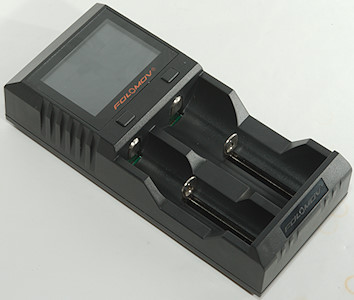
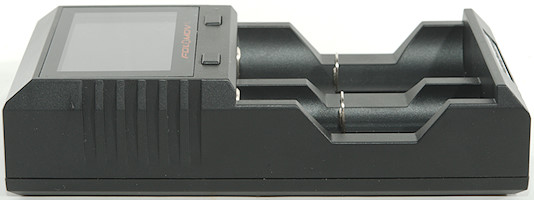
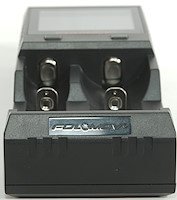
Folomov is new on the charger market and has started with some fairly powerful chargers. This is a two slot charger that can charge with up to 3A, but also charge with low current for small cells.
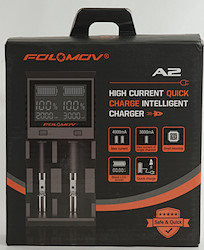

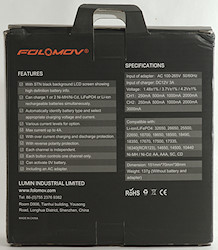

The cardboard box lists lot of specifications, battery types and features.
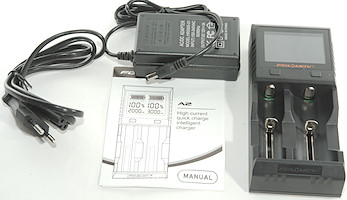
The box contains the charger, a power supply and a instruction sheet.
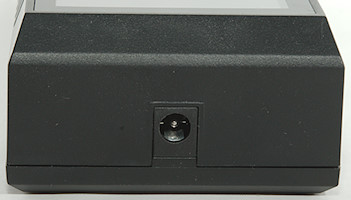
The charger has one 12V input barrel connector.
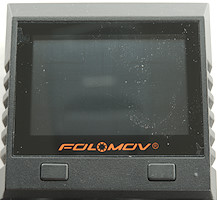
The user interface has two buttons, one for each slot and a large display.
After putting a battery in a slot the current will flash for some time.
When flashing a short press on the slot button will change current in this sequence 250-500-1000-2000-3000-2000-500-250, holding down the button will change chemistry between LiIon and LiFePO4.
The user interface is slightly slow, i.e. a fast double presses is not detected.
I have one complain about the interface: When a current is changed for one channel, the adjustment time for that channel is extended, but not for the other channel, i.e. if you are too slow at selecting the current for the first channel, the second channel will start charging. The solution is to put one battery in at a time and select current for it, then the next (or be fast enough).
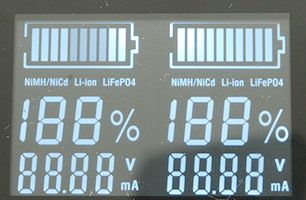
The display is fairly simple, each slot has a large animated (when charging) battery symbol, a chemistry text, a charge percent, the voltage and charge current. The segments are not uniform brightness on the display.
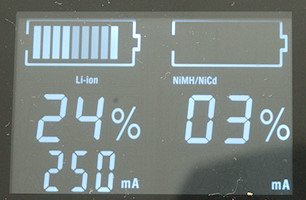
Display during charge, the bottom line will change between current and voltage.
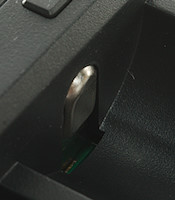
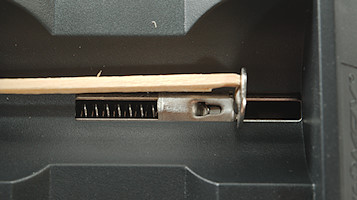
The slots uses the usual construction and works well. They can handle batteries from 28mm to 70.1mm long. The new 70mm cells are a very tight fit and very long protection 18650 will not fit.

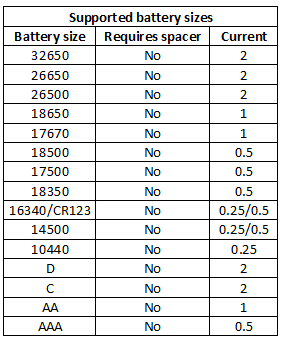












The charger can nearly handle 70 mm long batteries, there is no problems with flat top cells.
Measurements
- Charger will charge a LiIon with 0.4mA when full.
- Charger will discharge a LiIon with 0.15mA when not powered.
- Charger will discharge a NiMH with 0.03mA when not powered.
- Below 0.8V the charger will show "Er" and charge with about 3mA
- Between 0.8V and 2V NiMH is assumed
- Above 2.0V LiIon is assumed
- Voltmeter is within 0.02V in the full range.
- Voltmeter will stop updating when charging is stopped.
- Charger will restart if battery voltage drops to about 3.9V.
- Charger will restart if battery is removed or power is cycled.
- Power consumption when idle is 0.85 watt
4.2V LiIon charging
Charge current can be selected from 250mA, 500mA, 1000mA, 2000mA and for a single cell in #2 slot 3000mA
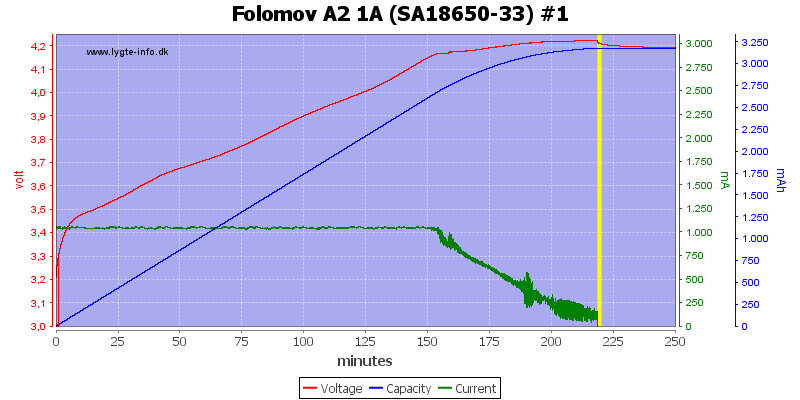
A nice CC/CV voltage charge curve with termination at about 100mA
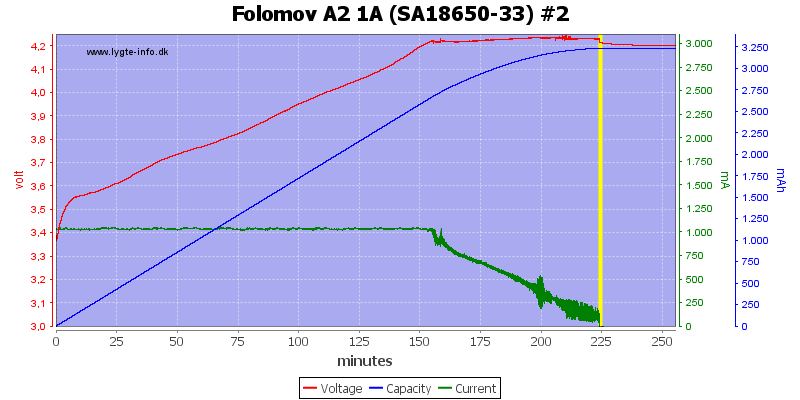
The second channel is the same.
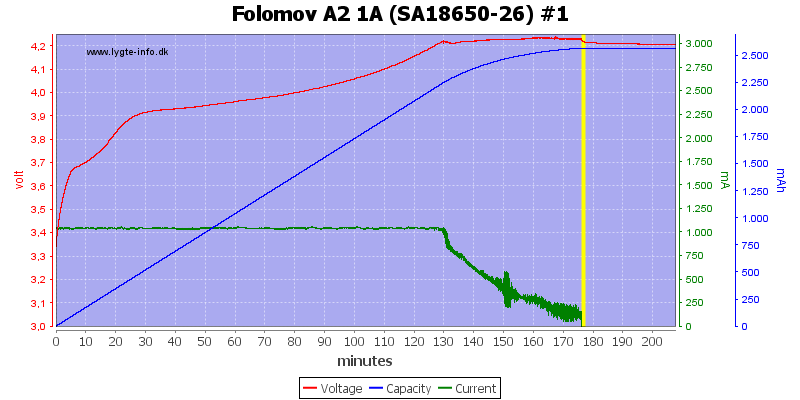
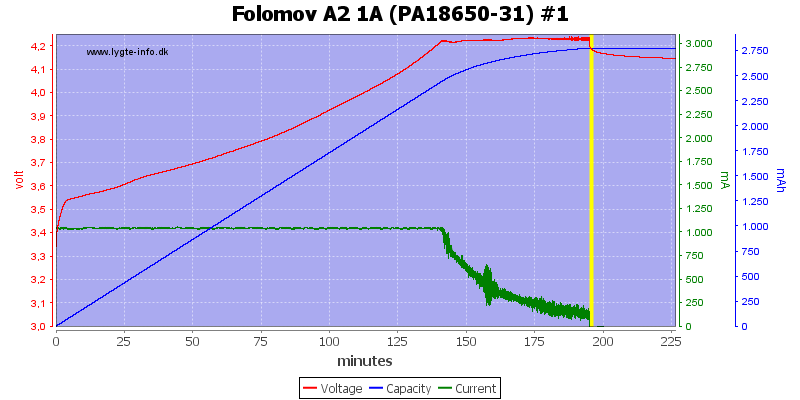
The two other capacities works fine.
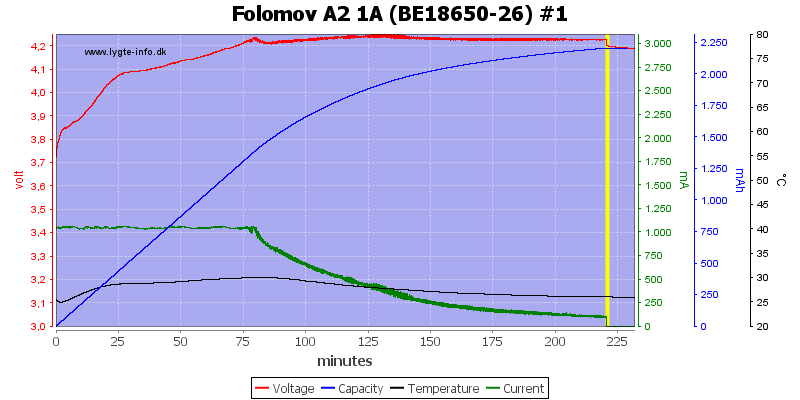
This fairly old cell is handled nicely at 1A charge current.
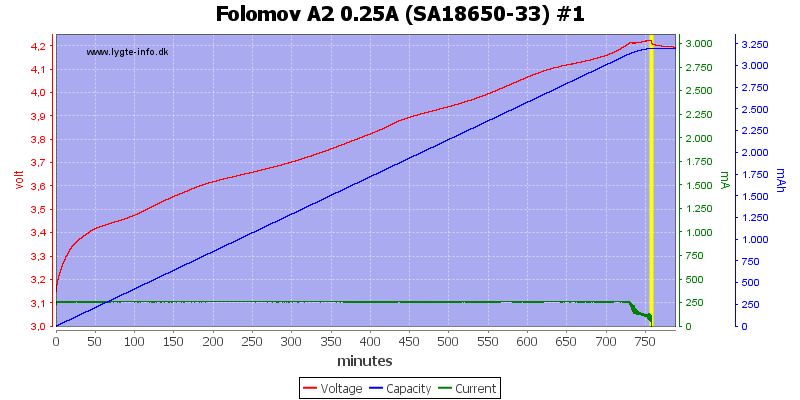
Charging with 0.25A also works fine.
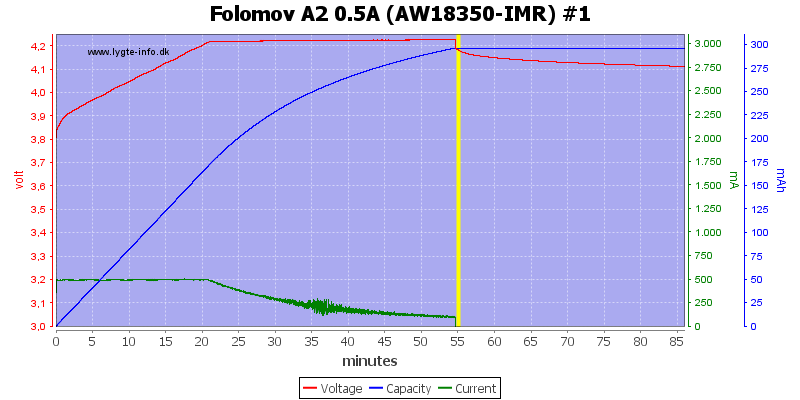
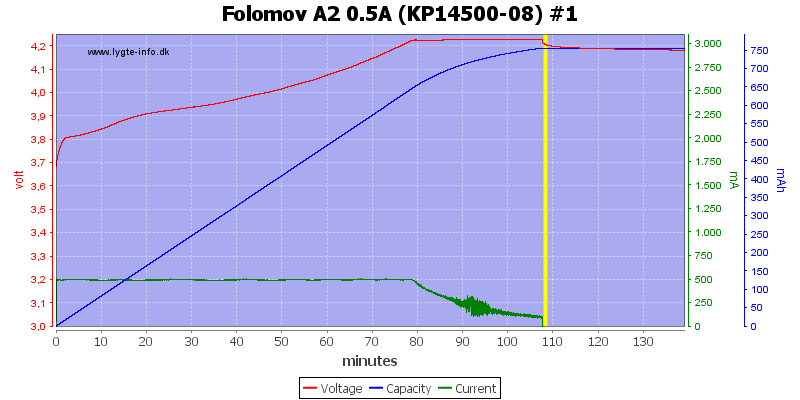
These two smaller cells is charged at 0.5A at it worked fine.
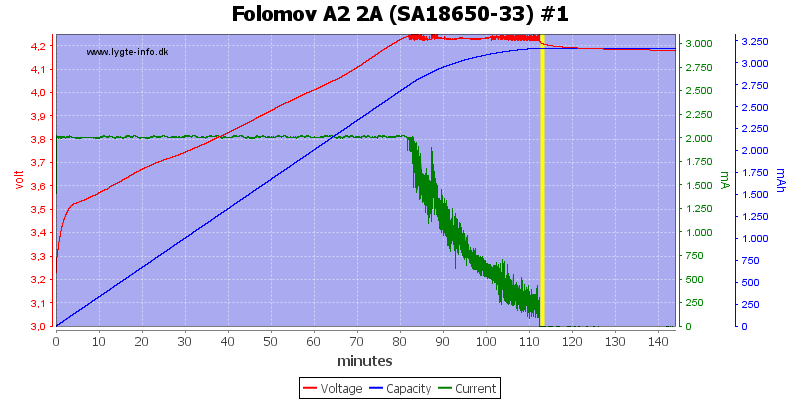
A 2A charge, termination current is about the same. The charger do not have perfect control of the CV phase, but it works fine.
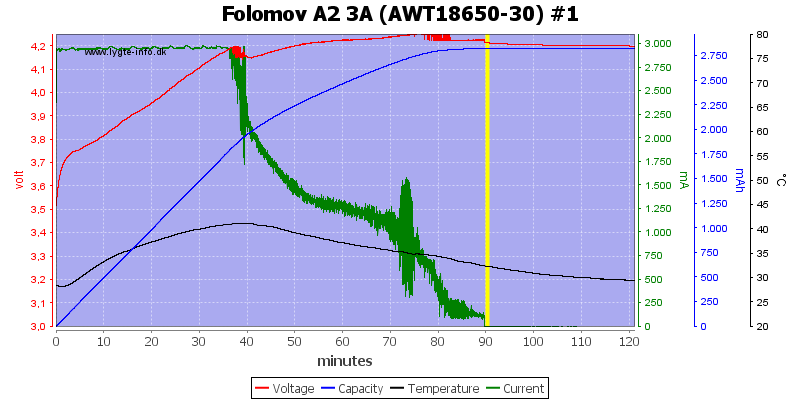
3A works the same way
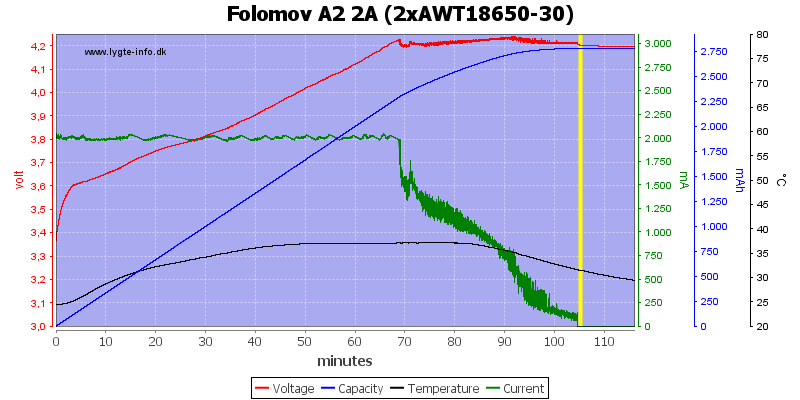
Two cells at 2A
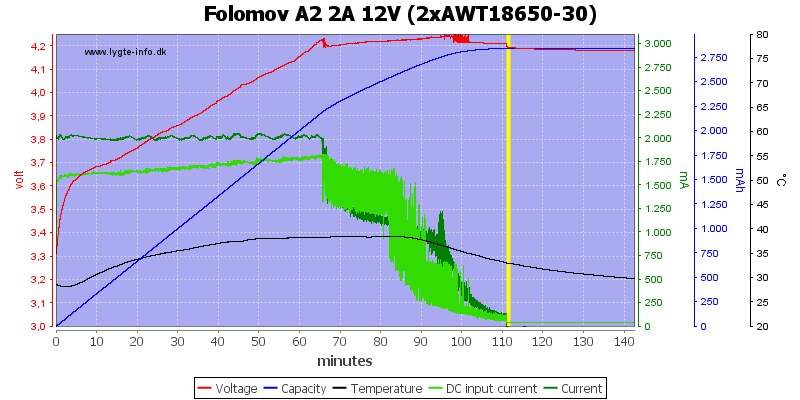
When charging with a total current of 4A it needs nearly 2A from the 12V input.
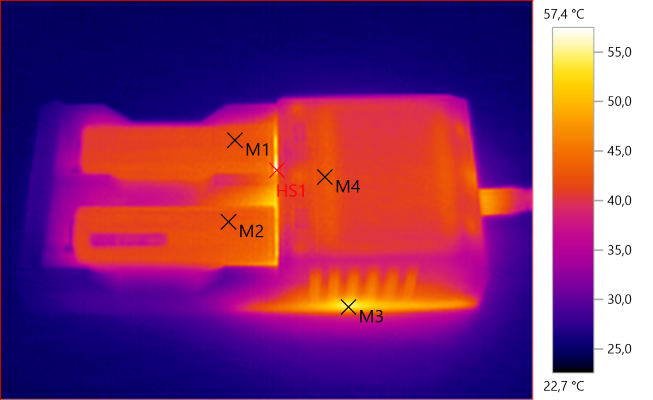
M1: 42,2°C, M2: 42,8°C, M3: 54,6°C, M4: 42,7°C, HS1: 57,4°C
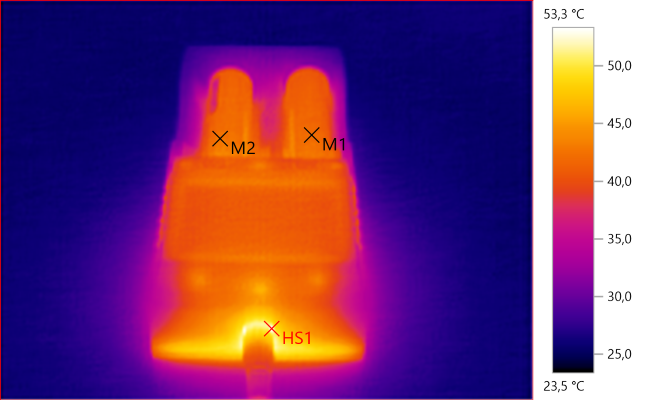
M1: 42,3°C, M2: 42,5°C, HS1: 53,3°C
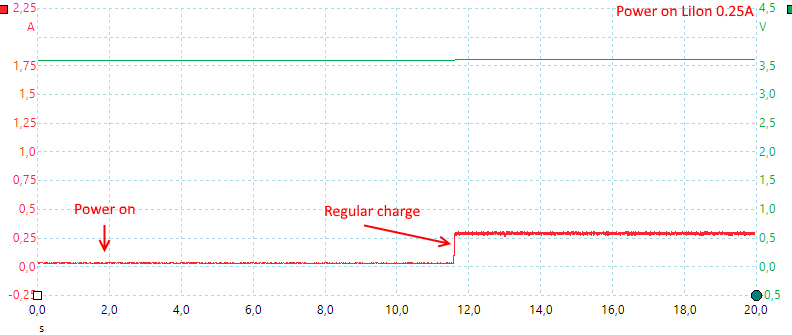
The charger takes about 10 seconds to start.
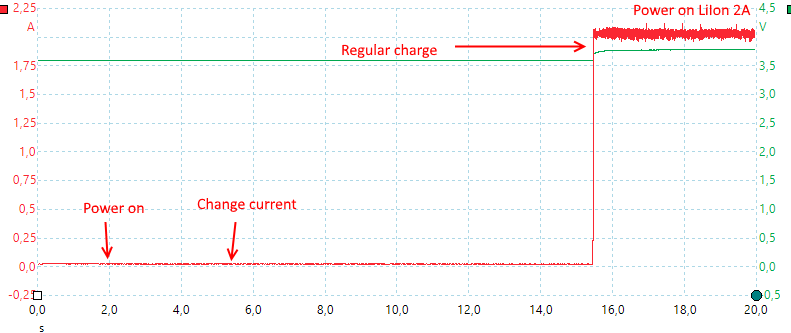
If the button is pressed during that time the current is changed and the time is extended.
3.6V LiIon charging (LiFePO4)
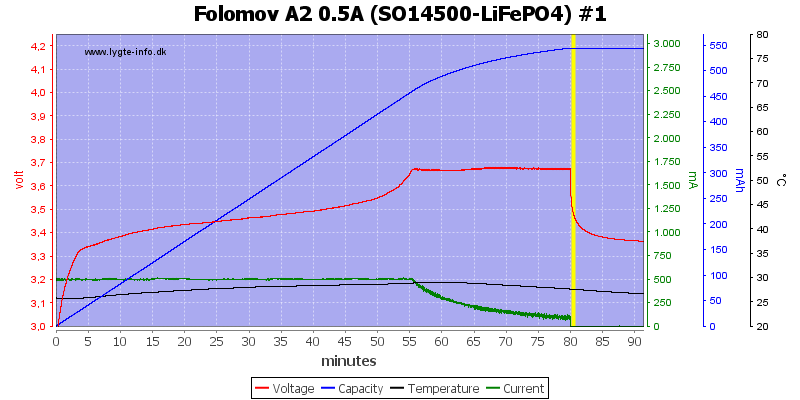
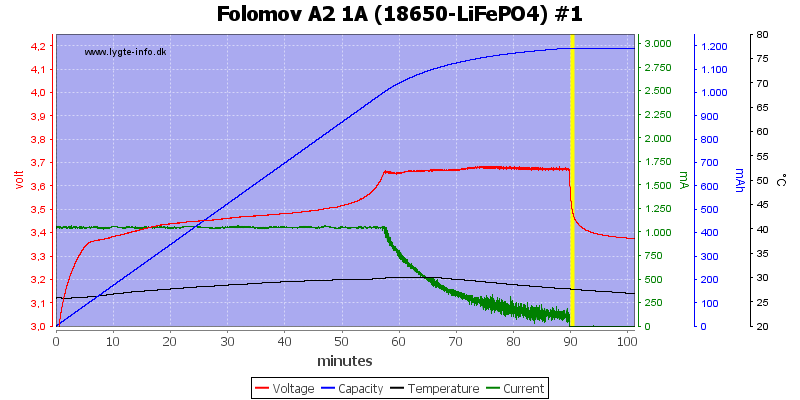
The LiFePO4 charge curves looks good.
NiMH charging
Charge current can be selected from 250mA, 500mA, 1000mA, 2000mA and for slot #2 3000mA
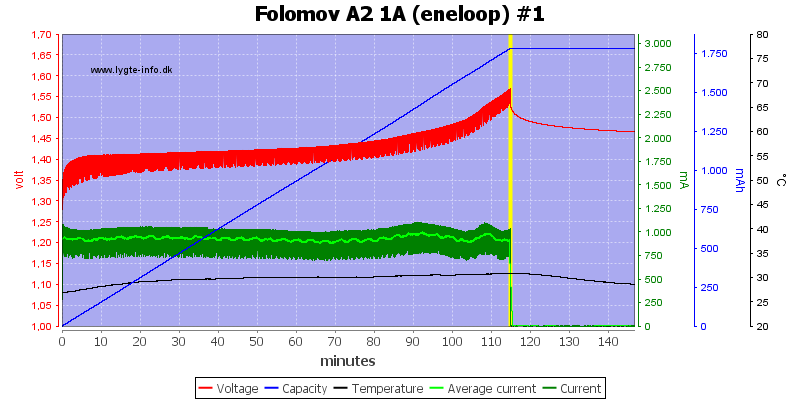
This is a voltage termination with no top-off charge and no trickle charge. This means the batteries will not be filled completely.
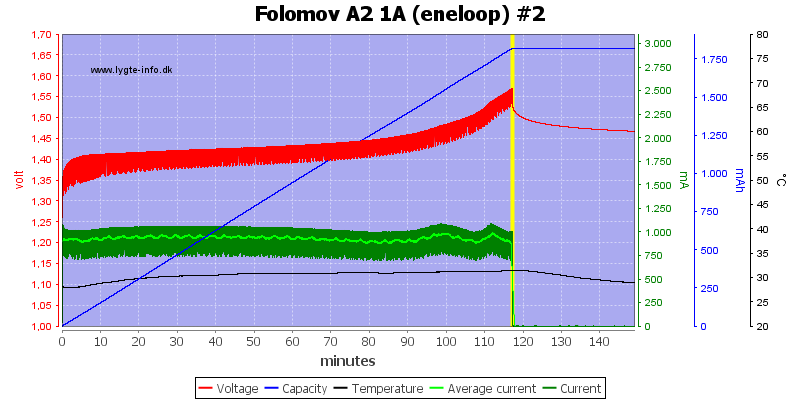
Slot #2 is the same.
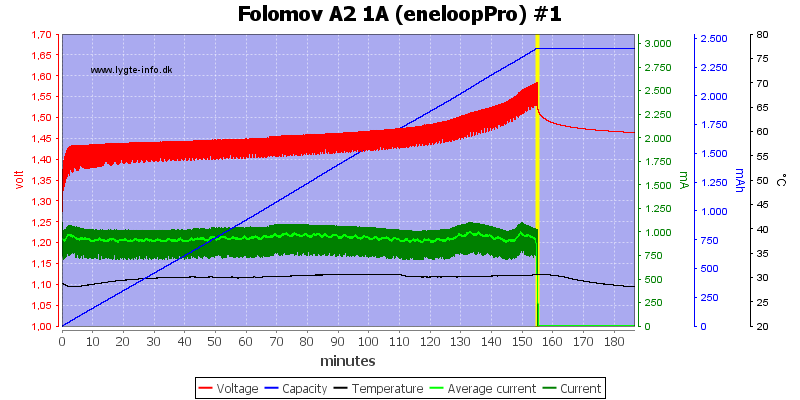
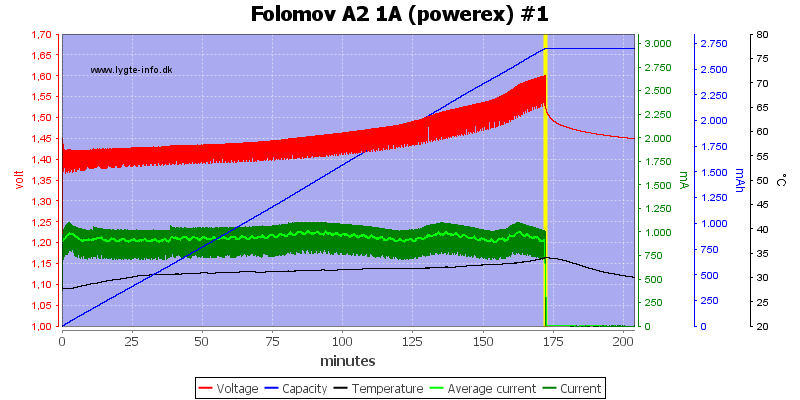
The two high capacity cells works the same way.
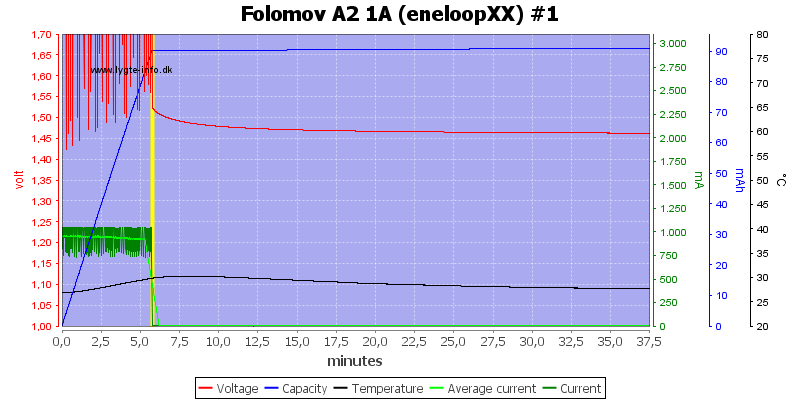
My worn down cell is not charged.
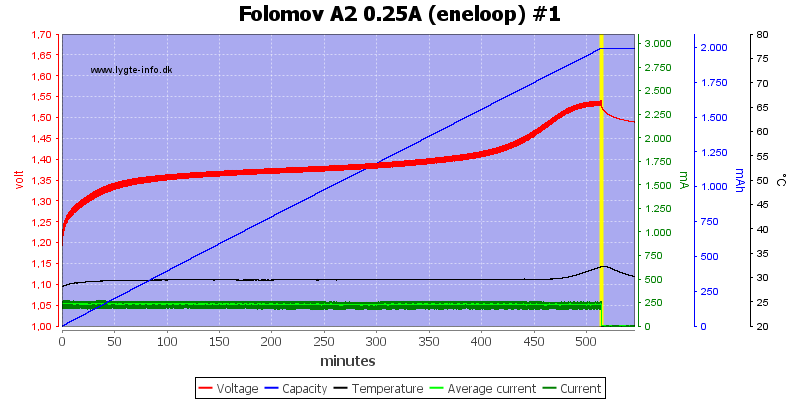
The voltage termination also works fine at 0.25A, this time there is a temperature raise, i.e. the cell is basically full.
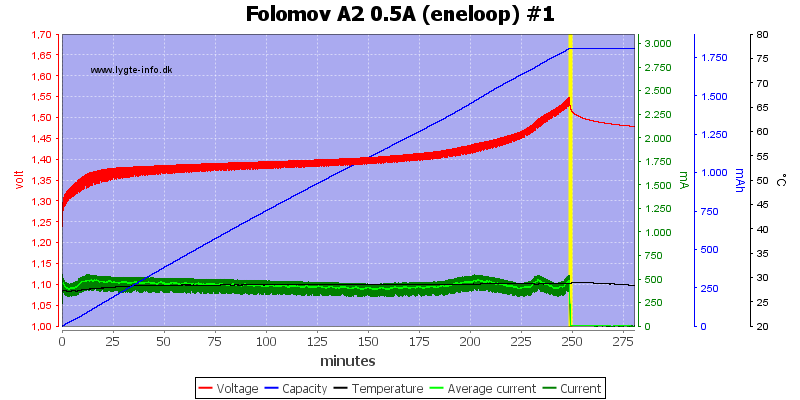
0.5A also looks fine.
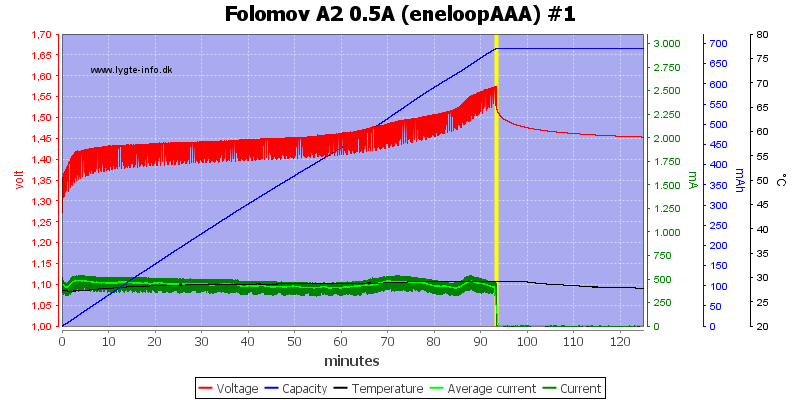
Here with an AAA cell.
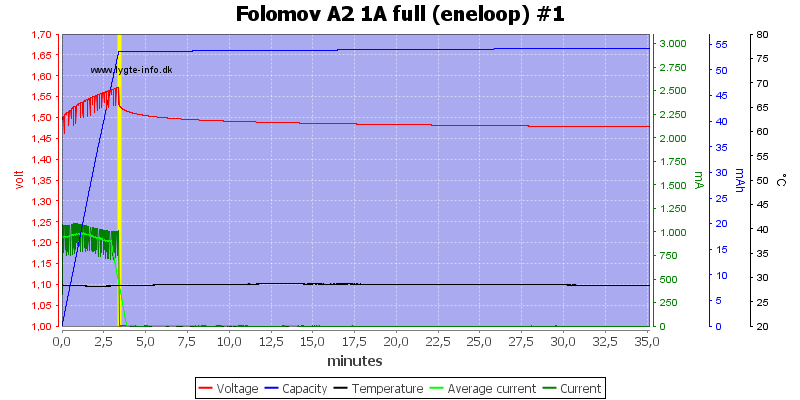
Voltage termination gives fast detection of a full cell.
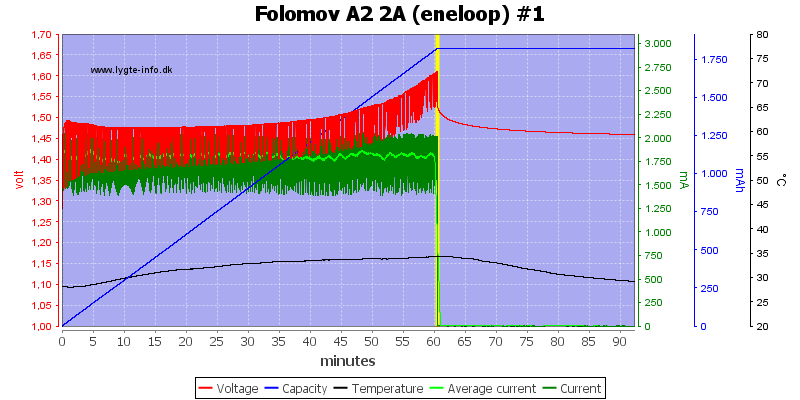
Fast charging at 2A.
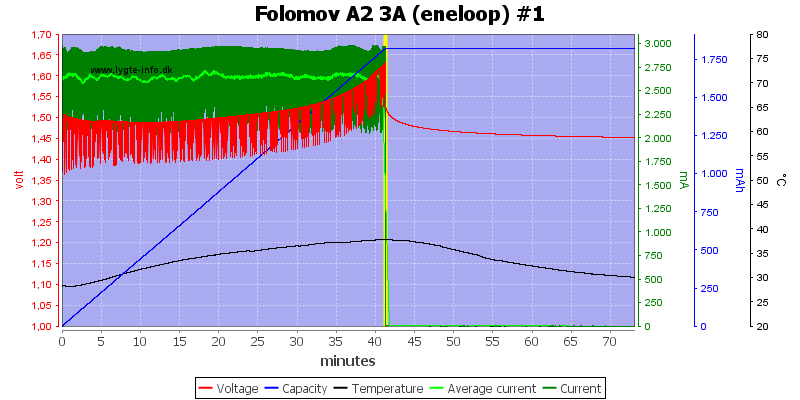
And even faster at 3A.
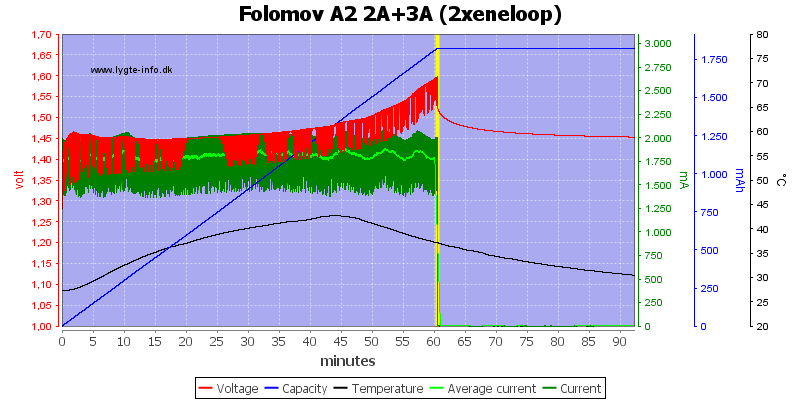
With two cell the charger can do one cell at 2A and one at 3A (Temperature sensor is on 3A cell).
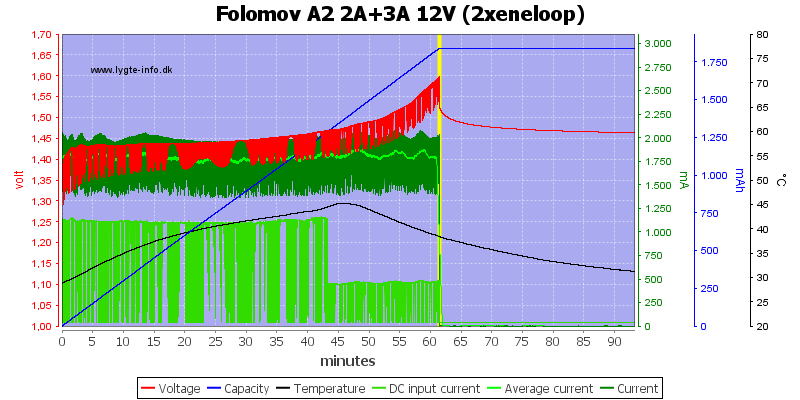
For charging NiMH at maximum speed it needs about 1.1A from 12V, it is easy to see on the input current when the 3A charge is finished.
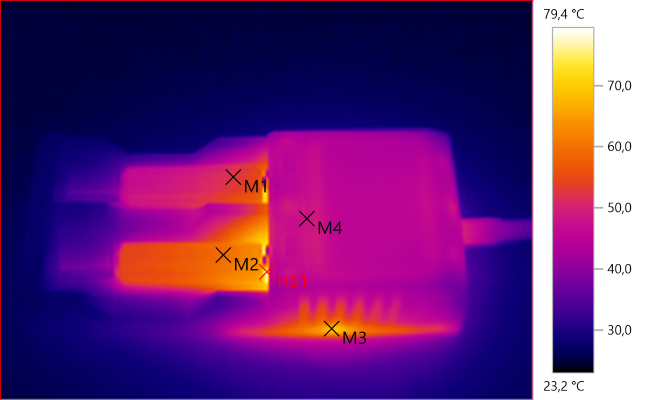
M1: 52,5°C, M2: 59,6°C, M3: 68,3°C, M4: 48,0°C, HS1: 79,4°C
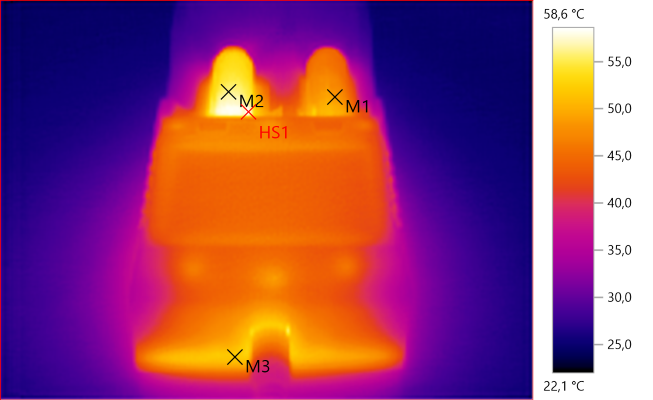
M1: 48,6°C, M2: 56,1°C, M3: 51,7°C, HS1: 58,6°C
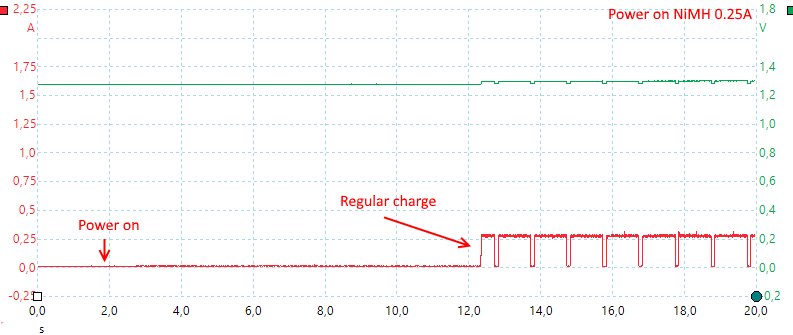
NiMH also needs about 10 seconds to start, the charger turns current off to measure voltage.
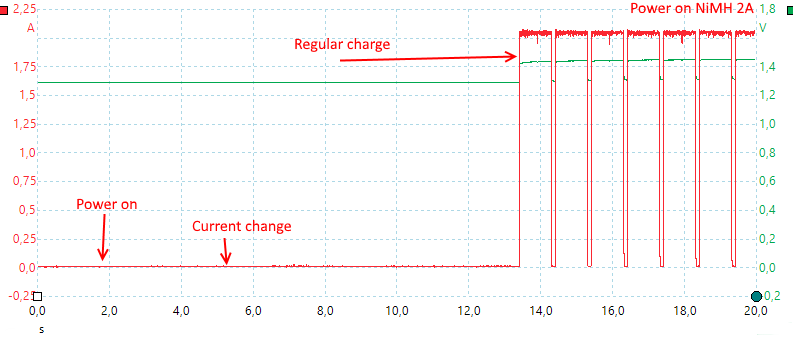
When adjusting the current the wait period is extended.
Testing with 2830 volt and 4242 volt between mains and low volt side, did not show any safety problems.
Conclusion
This charger may look a bit simple, but it has what is needed for charging two types of LiIon and NiMH and it can do it slow or fast, depending on what is needed. I like the simplicity of the user interface, but would have liked it a bit more responsive.
Because it terminates NiMH on voltage a one or two hour top-off charge would have been nice.
I will rate it as a good charger.
Notes
The charger was supplied by a Folomov for review.
Here is an explanation on how I did the above charge curves: How do I test a charger






























































